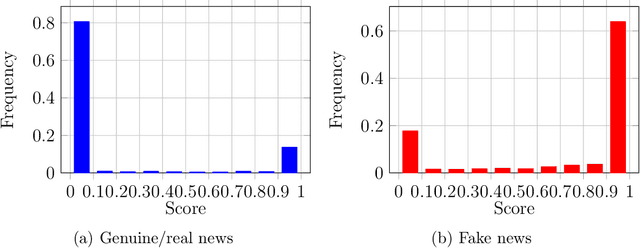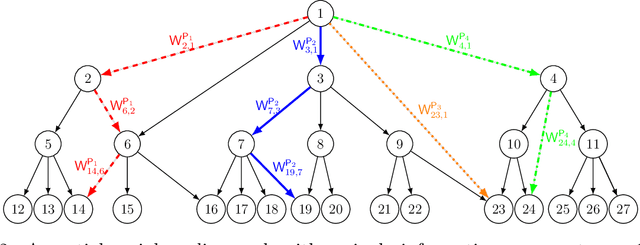Vered Azar
Online Auditing of Information Flow
Oct 23, 2023



Abstract:Modern social media platforms play an important role in facilitating rapid dissemination of information through their massive user networks. Fake news, misinformation, and unverifiable facts on social media platforms propagate disharmony and affect society. In this paper, we consider the problem of online auditing of information flow/propagation with the goal of classifying news items as fake or genuine. Specifically, driven by experiential studies on real-world social media platforms, we propose a probabilistic Markovian information spread model over networks modeled by graphs. We then formulate our inference task as a certain sequential detection problem with the goal of minimizing the combination of the error probability and the time it takes to achieve correct decision. For this model, we find the optimal detection algorithm minimizing the aforementioned risk and prove several statistical guarantees. We then test our algorithm over real-world datasets. To that end, we first construct an offline algorithm for learning the probabilistic information spreading model, and then apply our optimal detection algorithm. Experimental study show that our algorithm outperforms state-of-the-art misinformation detection algorithms in terms of accuracy and detection time.
 Add to Chrome
Add to Chrome Add to Firefox
Add to Firefox Add to Edge
Add to Edge